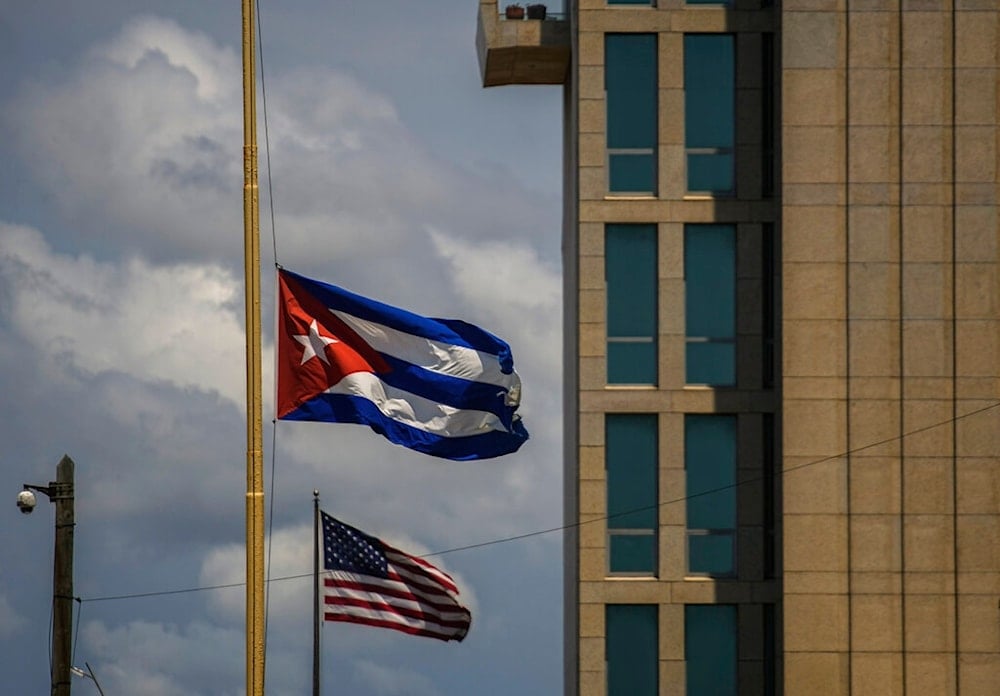Biden to remove Cuba from terror list
US President Joe Biden intends to ease sanctions against Cuba, just days ahead of Donald Trump’s inauguration.
-

A Cuban flag is seen next to an American flag outside the US embassy in Havana, Cuba, on Tuesday, May 17, 2022. (AP)
President Joe Biden is removing Cuba from the US list of state sponsors of terrorism, as part of a broader agreement that includes the release of some prisoners on the island, the White House announced on Tuesday.
The decision is expected to be reversed once Republican Donald Trump resumes office next week. Trump reinstated Cuba's designation as a state sponsor of terrorism during the final days of his first term in 2021.
"An assessment has been completed, and we do not have information that supports Cuba's designation as being a state sponsor of terrorism," a senior administration official stated during a press briefing.
The official indicated that the release would occur in relatively short order" and involve a "significant" number of individuals.
The official also noted that the Catholic Church in the Vatican was "significantly advancing" an agreement with Cuba to secure the humanitarian release of "political prisoners in Cuba and those who have been detained unjustly."
In a separate statement, the White House confirmed that Biden would waive provisions of the Libertad Act, which underpins the US embargo on Cuba. This waiver would prevent US nationals from filing lawsuits in American courts over claims to confiscated property in Cuba that may be "trafficked".
Additionally, Biden is revoking a Trump-era policy known as "National Security Presidential Memorandum 5," effectively lifting restrictions on financial transactions with specific Cuban entities.
Cuba to release 553 prisoners
Shortly after, Cuban Foreign Minister Bruno Rodriguez said Washington had taken a step in the "right direction" in announcing it would remove Cuba from its list of state sponsors of terrorism.
"The United States is taking steps in the right direction, but the blockade remains," Rodriguez pointed out.
In addition, Cuba's Foreign Ministry said that President Miguel Diaz-Canel has announced a decision "to grant freedom to 553 persons who had been duly tried for diverse crimes."
For over six decades, Cuba has been subjected to US sanctions, which the Cuban government attributes to its severe economic crisis, including shortages of fuel, food, medicine, and electricity.
During Trump’s first presidential term, from 2017 to 2021, sanctions on Cuba were significantly tightened, adding to the embargo that has been in place since 1962.
Trump allies swiftly criticize Biden’s announcement
Criticism of Biden’s announcement quickly emerged from Trump allies. Senator Ted Cruz, a Cuban-American member of the Senate Foreign Relations Committee, described the decision as "rank appeasement of the Cuban regime."
"They push these policies both because they believe in them and to undermine the incoming Trump administration and Republicans in Congress," Cruz stated.
Trump has nominated Senator Marco Rubio, another Cuban-American and vocal critic of the island's government, as his secretary of state.
Read more: Cuban President, demonstrators march in front of US embassy in Havana

 3 Min Read
3 Min Read










